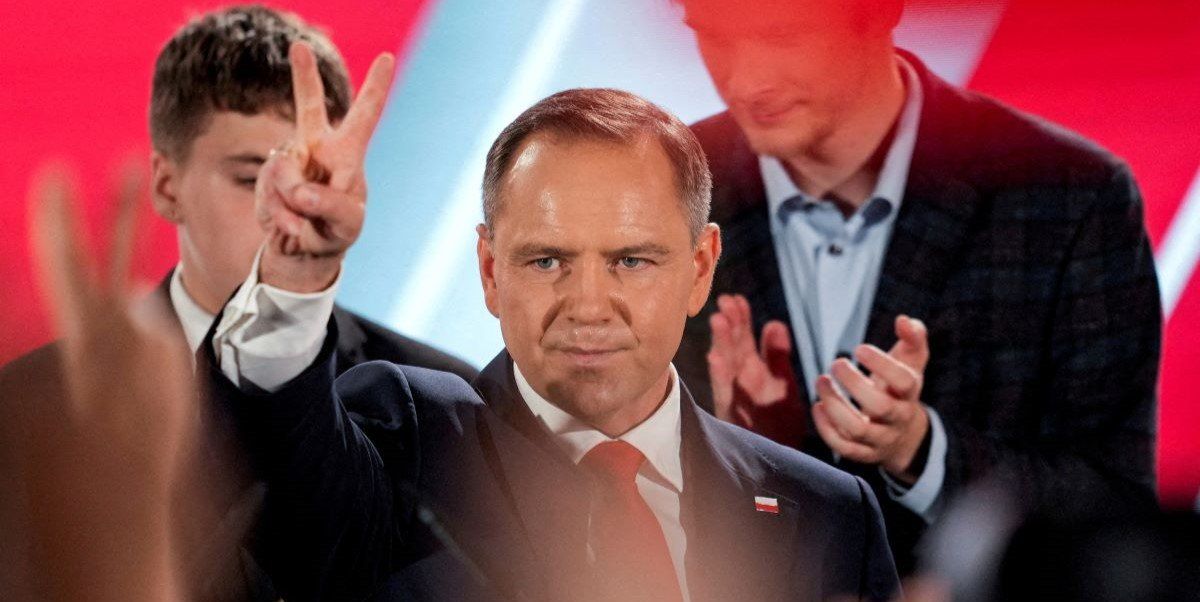Just when you thought the far right was in retreat in Eastern Europe, following recent losses in Romania and Albania, it came roaring back in Poland. On Sunday, conservative presidential candidate Karol Nawrocki overcame a two-point defeat in the first round of voting to best liberal Warsaw Mayor Rafal Trzaskowski in the second round with a slim majority of 50.89%.
What made the difference? Nawrocki had a scapegoat in the form of Prime Minister Donald Tusk. The former European Council president is unpopular on home soil, due in part to his failure to pass the reforms that he campaigned on. Ironically, it was the outgoing president, Andrzej Duda, who stymied Tusk’s agenda, helping his fellow right winger Nawrocki to win the race. Though the Polish president doesn’t make day-to-day decisions, he does have veto power and influence over the country’s foreign policy.
The United States also had a hand in the race. The US-sponsored Conservative Political Action Conference (CPAC) held its first-ever foreign confab in Jasinski last week, where US Department of Homeland Security Secretary Kristi Noem described Trzaskowski as “an absolute train wreck of a leader” and urged Poles to vote for his opponent.
But the MAGA message hasn’t always landed. In last month’s Romanian presidential election, Bucharest’s centrist mayor Nicușor Dan defeated hard-right firebrand George Simion with 53.8% of the vote to his opponent’s 46.2%. The Trump administration was involved again: US Vice President JD Vance had criticized Romanian courts for annulling a prior vote due to Russian interference. Romanians paid no heed, and opted for former mathematician Dan and continued support for Ukraine and EU integration.
It was a similar story in Albania, where a MAGA-themed message – “Make Albania Great Again” – fell on deaf ears. Former Prime Minister Sali Berisha didn’t just co-opt US President Donald Trump’s slogan, he even hired his former co-campaign manager Chris LaCivita. It was to no avail: Berisha’s center-right Democratic Party actually lost seats in the parliamentary elections, as Socialist Party leader Edi Rama sailed to his fourth consecutive term as prime minister. He hopes to have Albania join the EU by 2030.
What about the rest of Europe? Hard-right parties that align with the US president appear to be on the rise in Western Europe. Nigel Farage’s Reform UK party dominated the local elections in the United Kingdom, Alternative for Germany (AfD) achieved their best-ever result in February’s election, and Portugal’s ultranationalist Chega party knocked off the Socialist Party to be the parliament’s principal opposition. These hard-right parties in Western Europe remain short of attaining a majority of support, but they are trending in that direction.
The next target: the Netherlands. The Dutch government crumbled on Tuesday, with Prime Minister Dick Schoof resigning his post after far-right leader Geert Wilders and his Party for Freedom (PVV) quit the coalition government in protest over its – you guessed it – immigration policies. A snap election looks likely, though it won’t come until the fall.
